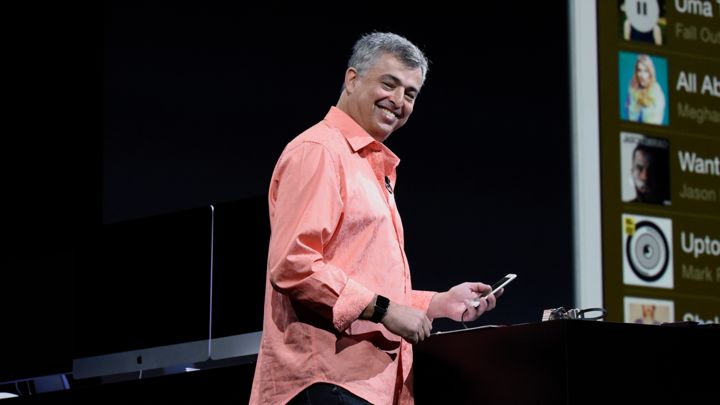Within less than 24 hours, Taylor Swift’s To Apple, Love Taylor post prompted Apple executives to back down and pay artists and musicians full royalties on a three-month free trial period for the tech giant’s upcoming streaming service. “When I woke up and read Taylor’s note, it solidified quickly that we needed a change,” Eddy Cue, Apple’s senior vice president of Internet software and services who oversees the company’s music operations, tells Rolling Stone. “Music is a big part of our DNA and we always strive to make sure artists are paid for their work.”
Before announcing Apple Music, which includes a Spotify-style streaming service and a radio station with experienced DJs, the company negotiated with all three major record labels and agreed to pay 71.5 percent of revenue to artists, labels, songwriters and other rightsholders. This higher-than-usual royalty rate was “in return” for the three-month free trial, Cue says.
But last week, sources at several independent record labels accused Apple of trying to give away their music for free by strong-arming them into being part of the service. “I hesitate to say ‘everyone,’ but a lot of independent labels are of the same mind — that it’s kind of a raw deal,” an indie-label source told Rolling Stone.
Swift, who last fall pulled her catalog from Spotify because she didn’t want to give her music away in the service’s ad-supported “freemium” model, joined the anti-Apple chorus Sunday morning. “I’m not sure you know that Apple Music will not be paying writers, producers, or artists for those three months,” she wrote. “I find it to be shocking, disappointing, and completely unlike this historically progressive and generous company.”
By Sunday night, Cue had capitulated via Twitter. “When we negotiated with the [major] labels, we ended up on a price where we’d pay them a higher royalty rate in compensation for this,” he tells Rolling Stone. “but it was clearly something that was not working.
“This is really simple — if artists believe we’re not paying, because we’re not paying for it directly, and there was an indirect way we negotiated, and that doesn’t work, then we wanted to fix it,” he adds. “We wanted for it to be the right thing for the artists.” An Apple spokesperson declined to specify artist compensation details to Rolling Stone.
Apple Music, which will launch June 30th, is the long-awaited response to music-streaming rivals such as Spotify, YouTube, Pandora, Rdio and Rhapsody. While Spotify has more than 75 million users, only 20 million of those pay $10 a month for premium subscriptions. Swift has argued strenuously against free, ad-supported music streaming, although she does offer much of her catalog via YouTube and Vevo; several major-label executives have also encouraged Spotify to limit the music available on its free service.
It’s unclear whether the majority of music consumers, trained for 15 years to expect free music online, will fully shift to a pay model — but record execs are optimistic. “Our hope is Apple converts its download base into subscriptions, and Spotify continues to grow in the exponential [way] that it’s going,” says a source at a major label. “If those two things happen together, you really are starting to talk about a new golden age of music.”
[Rolling Stone]


